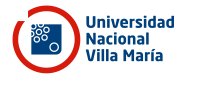Procesos de resignificación de la realidad a partir de experiencias de Comunicación y Educación en Contextos de Encierro. Caso: Servicio Penitenciario de Córdoba, Establecimiento Nº 5 Villa María
Resumo
Los sujetos privados de la libertad atraviesan una situación de aislamiento respecto de los hechos que suceden cotidianamente. Finalizada la temporalidad de la pena, regresan a la comunidad con experiencias que modifican su autopercepción y la percepción de la realidad.De esta manera, los espacios educativos y de comunicación en contextos de encierro tienen como finalidad que la experiencia sancionadora de la cárcel se nutra de conocimientos validados socialmente, generando aportes que resignifiquen el retorno del sujeto a su contexto particular.
Desde el año 2009 se desarrolla en la Universidad Nacional de Villa María, el proyecto de extensión “Comunicación para la Inclusión” dentro del Establecimiento Penitenciario N°5 de Villa María. El mismo busca generar instancias de reflexión y expresión para sujetos en condición de encierro, habilitando el ejercicio pleno del derecho a la comunicación, constituyéndose en una instancia de educación inclusiva.
A partir de esta experiencia, problematizar la vinculación entre los conceptos comunicación, educación y cárcel posibilitó enmarcar el Taller en un proyecto de investigación. El objetivo de éste, apunta a comprender la complejidad de los procesos de construcción de subjetividades de las personas presas, a través de los espacios comunes de comunicación y educación en dicho Establecimiento Penitenciario.
Palavras-chave:
comunicación, educación, contextos de encierro, presos, Villa MaríaLicença
Copyright (c) 2015 Raigal

Este trabalho está licenciado sob uma licença Creative Commons Attribution 4.0 International License.
Downloads
Não há dados estatísticos.
Publicado
31-10-2015
Como Citar
Avendaño Manelli, C. F., Ceballos, C. E., & Romero Ramayo, M. de los Ángeles. (2015). Procesos de resignificación de la realidad a partir de experiencias de Comunicación y Educación en Contextos de Encierro. Caso: Servicio Penitenciario de Córdoba, Establecimiento Nº 5 Villa María. Raigal, (1), 120–127. Recuperado de https://raigal.unvm.edu.ar/ojs/index.php/raigal/article/view/11
Edição
Seção
Comunicaciones y Notas






 Estamos presentes em...
Estamos presentes em...





